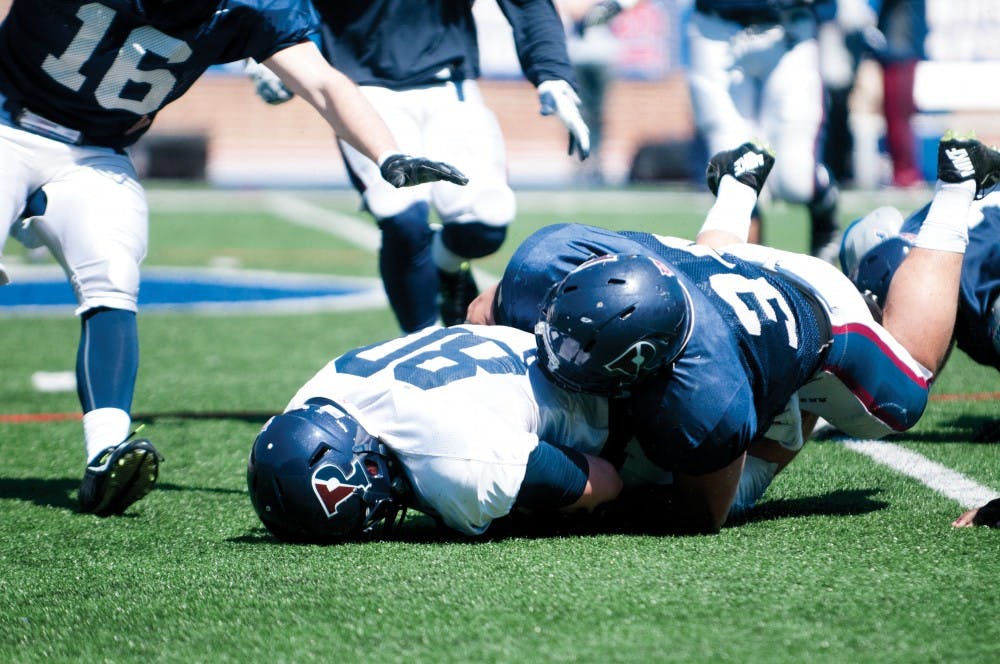For college football programs, the annual spring game usually provides an opportunity to answer questions about who will step up to replace the production of graduating seniors.
For Penn football and the other seven Ivy League programs, two questions remained unanswered: Will the coaches’ proposal to eliminate tackling from regular season practices be passed? And if it does, what effect will it have on the players?
Over this summer, the eight presidents will vote on the motion and, if it does pass, it will be implemented in preparation for the 2016 season.
The idea has attracted both widespread support and scrutiny. While many applauded the move for the emphasis it places on protecting the brains of the schools’ collegiate athletes, others, like former NFL lineman Mike Golic, have condemned the proposal for going too far.
The Quakers, fresh off their intrasquad scrimmage that marks the culmination of spring practice, had mixed feelings about the motion but generally supported the goals of the motion and rejected thoughts that if the rule passed they would lose a competitive edge to out-of-league opponents.
Junior linebacker Donald Panciello is confident that no matter the final decision, he and his fellow defenders will be well-prepared.
“We have to be ready for anything. But it shouldn’t change much,” he explained. “We’ll be able to play at the same level without being able to tackle. We do safe drills and stuff like that throughout practice.”
Panciello commended the effort by administrators to protect the players.
“It’s good to keep the players safe. They have our best interests in mind. We wanna keep guys on the field. So limiting the amount of contact we can do helps us do that.”
But this ruling alone is not the only way Penn is attempting to keep its players safe. It is merely the next logical step, after years of reducing exposure to potential concussion-causing drills.
“With how we’ve been practicing how to tackle a lot lately, it’s already eliminated a lot of the danger,” Panciello added. “So whether it passes or not it doesn’t effect us that much but it’ll definitely help if it passes.”
Although already afforded the protection from hits in practice that comes with wearing the red jersey, junior quarterback Alek Torgersen was also accepting of the idea.
“It doesn’t affect me much because I never get hit,” he admitted before adding, “It’s always nice to worry about the safety of our players, because concussions are an issue. It’s nice to have a league that’s being progressive like this.”
Torgersen, of course, sustained a concussion last season and as a result missed a start early on in the campaign, so he knows the effects of concussions. He is optimistic the measure can affect not just Ivy League players but the game itself.
“We’ll see how it goes and works out once it passes, but I think it should be a good thing for the sport.”
The main concern being voiced by outsiders is that players will face a disadvantage when they face out-of-conference teams that are practicing tackling on a regular basis and who are used to taking hard hits throughout the week.
Panciello isn’t worried.
“All these kids that we’re playing with have been playing football their whole life,” he said. “If you don’t know how to tackle by now, I guess you’ve got to figure it out.”
As Penn looks forward to its quest to repeat as Ivy League champions, the last thing on players’ minds seems to be logistics. Their mind is focused on winning. They’ll play with whatever hand they are dealt.



